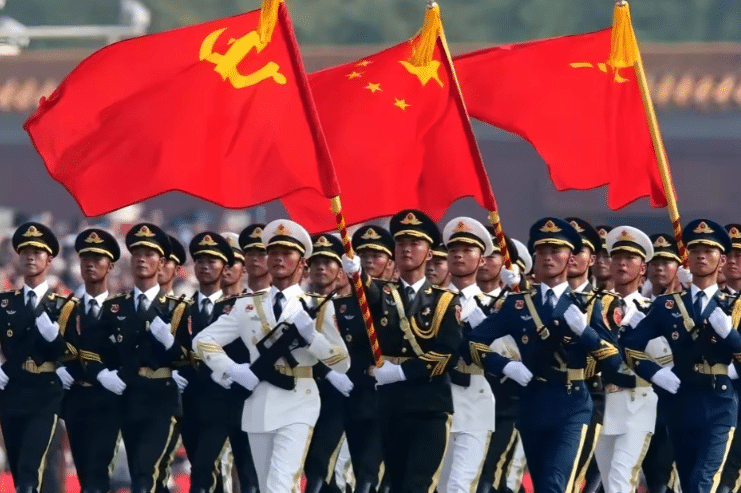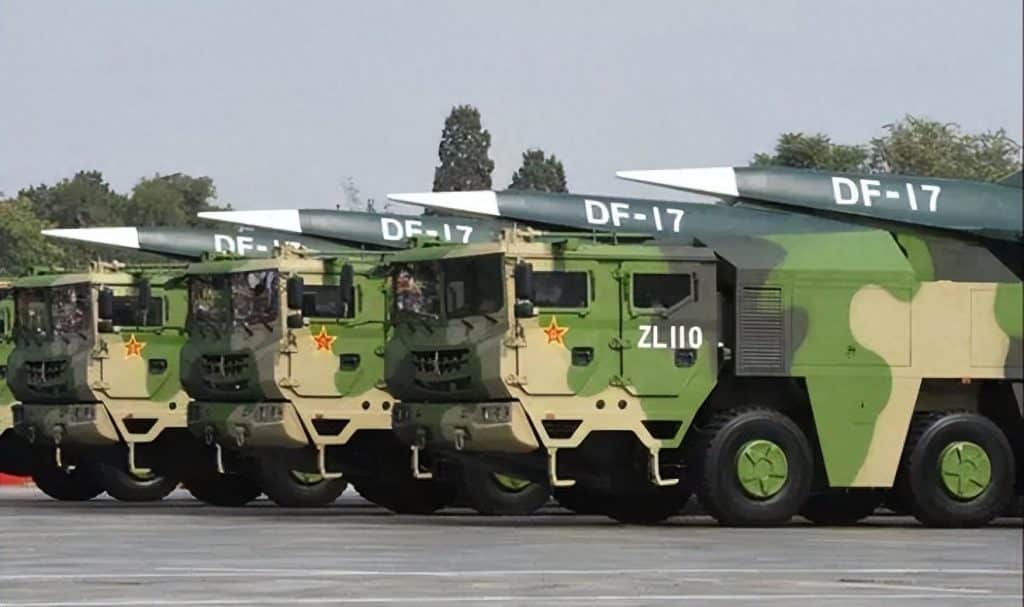On the U.S.-based Q&A platform Quora, a Japanese user once posed a provocative question: hypothetically, if Japan were to invade China again, would the Chinese be afraid, or would they resist?
The responses from Chinese netizens were swift and overwhelming. Instead of backing down, many countered with historical reminders and hard data, turning the discussion into more than just an online spat—it became a reflection of national memory and real-world power dynamics.

Why Are Chinese Not Afraid?
1. Military Strength Has Transformed
China’s armed forces have advanced rapidly. The navy boasts over 370 ships, including three aircraft carriers: Liaoning (refitted from the Soviet Varyag), Shandong (China’s first domestically built), and Fujian (equipped with electromagnetic catapults).
Destroyers like the Type 055 displace over 10,000 tons, carrying phased-array radar and vertical launch systems.
In missile systems, the DF-26 has a range of over 4,000 km and is considered a “carrier killer.” The DF-17 is a hypersonic missile traveling at Mach 5+, making interception extremely difficult.

The air force fields more than 200 J-20 stealth fighters, capable of supercruise with a minimal radar cross-section.
By contrast, Japan’s Self-Defense Forces (JSDF) maintain under 200 ships, with the Izumo-class converted to carry F-35Bs. Japan operates around 100 F-35s, but relies heavily on U.S. parts and technology. Article 9 of Japan’s constitution limits offensive weapons, keeping its military nominally defensive despite higher defense budgets.
2. Missile Coverage and Strategic Depth
Chinese netizens pointed out that Japan’s fleet would struggle to even leave the East China Sea, as China’s coast is lined with long-range anti-ship missiles. The YJ-21, with speeds up to Mach 10, can reach over 1,000 km.
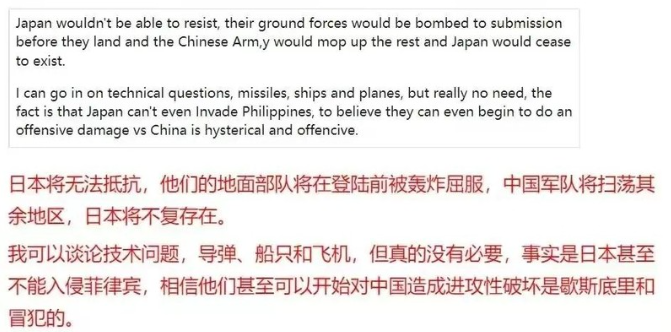
China’s Rocket Force operates from deep inland bases, giving it strategic resilience. Japan, a small island nation, would be highly vulnerable to saturation strikes.
3. Defense Industry and Self-Sufficiency
China has a complete defense industrial chain—from raw materials to advanced engines and missiles—while Japan depends on U.S. supply chains. If cut off, Japanese weapons risk becoming useless.
Economic Interdependence
In 2023, China-Japan trade exceeded $300 billion. By the first nine months of 2024, trade still stood at $224.6 billion. Japan exports cars and electronics to China, a key share of its GDP. A war would devastate Japanese industry, spike unemployment, and collapse supply chains.
China’s vast territory (9.6 million sq km) and 1.4 billion population provide unmatched endurance. Japan, with just 370,000 sq km and scarce resources, would face severe shortages—as it did in late WWII.
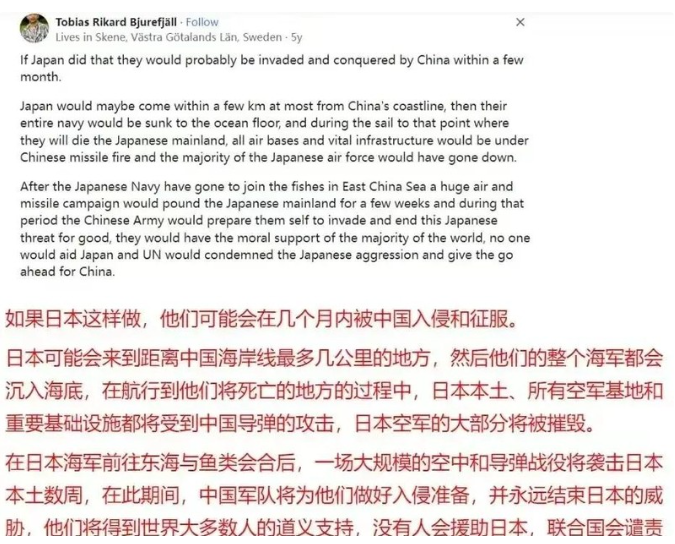
International Standing
China enjoys partnerships through BRICS and the Shanghai Cooperation Organization, working with Russia, India, Brazil, and others. Japan leans heavily on its U.S. alliance, but U.S. willingness to risk conflict with a nuclear-armed China is doubtful.
China’s DF-41 ICBMs cover targets worldwide. Japan has no nuclear weapons, constrained by both constitution and policy.
Historical and Cultural Memory
Chinese netizens invoked stories of resistance heroes such as Yang Jingyu, Zhao Shangzhi, and General Zhang Zizhong, who sacrificed their lives during the Anti-Japanese War. These stories fuel national resolve, with some saying: “If it comes again, not only will we resist, but we will also settle old accounts.”
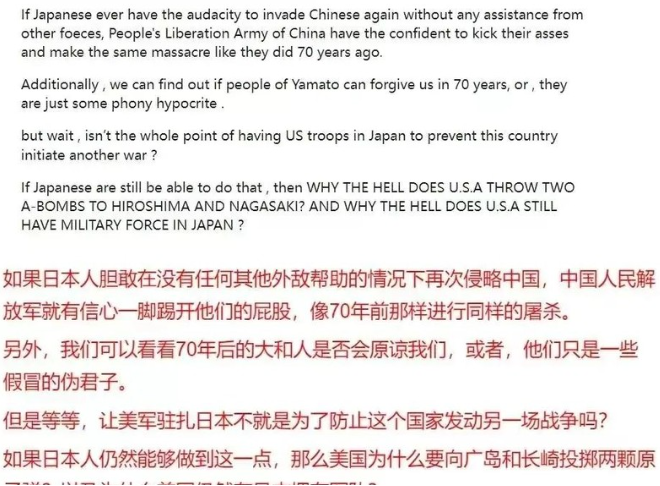
Overseas Chinese students added that they would return to serve if called. The sentiment reflects strong national cohesion.
Meanwhile, Japan faces demographic decline, an aging population, and recruitment difficulties for its Self-Defense Forces. While right-wing politicians stir nationalist rhetoric, mainstream Japanese society remains wary of war due to WWII’s painful legacy.
Netizen Perspectives
- On defense: “Japan’s fleet wouldn’t even leave port; coastal missiles would sink them first.”
- On economy: “If Japan loses access to the Chinese market, its economy will fall back by a decade.”
- On history: “Japan must face its past honestly instead of provoking its neighbors.”
Many concluded with the proverb: “Those who commit too many injustices will bring about their own destruction.”
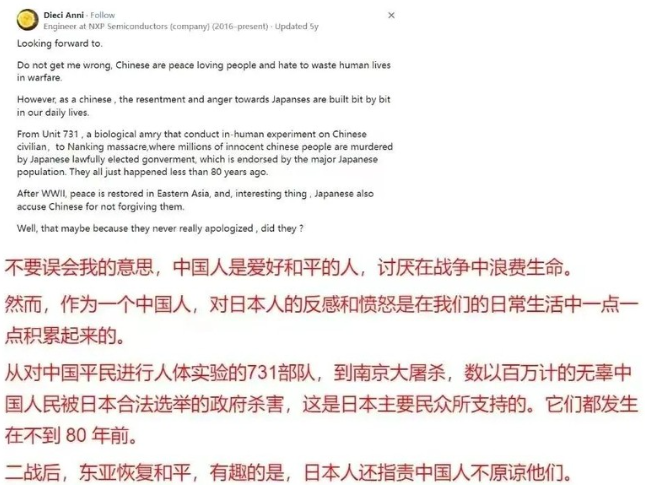
Conclusion
Chinese respondents made clear: they are not afraid. Military capability, economic resilience, and national confidence underpin this stance. While peace and cooperation remain the preferred path, history teaches that aggression brings disaster.
The final message to the Japanese user was simple: study history, respect your neighbors, and choose dialogue over provocation.
References
- Quora discussions on China-Japan hypothetical conflict
- Public military and economic reports (2023–2024)
- Historical archives on Chinese anti-Japanese resistance


